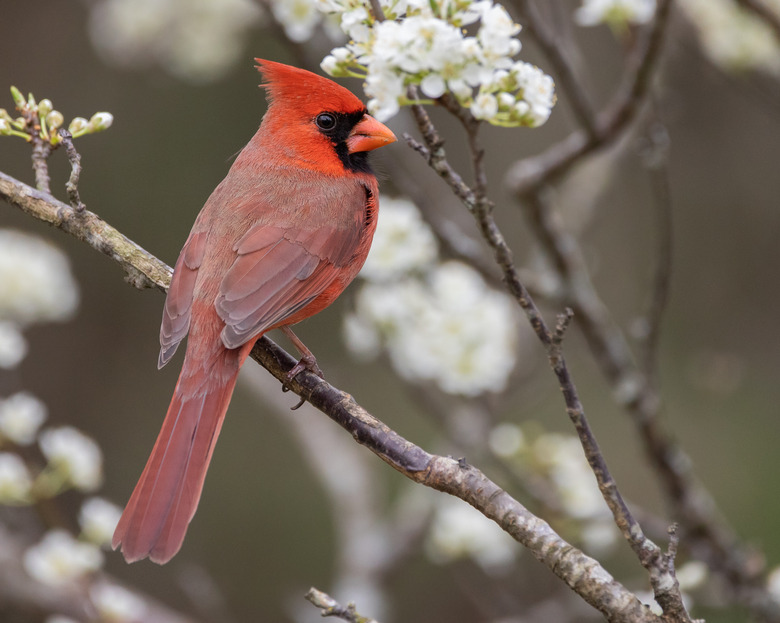We Lost 3 Billion Birds In 50 Years: Here's How It Happened And What You Can Do
Another day, another sobering statistic about our environment: A new study found that since 1970, nearly 3 billion birds have been lost in North American habitats.
If that number seems staggering to you, you're not alone. Scientists and experts across the continent are stunned by the new findings from the comprehensive study led by the Cornell Lab of Ornithology. Using data including weather radar and bird watching records, the exhaustive report details how bird populations have fallen by 29 percent in the past 50 years.
The losses aren't just rare species or birds that had already been tottering on the brink of extinction. More than 90 percent come from the types of birds you've likely seen right in your own backyard or at a local park. Ninety percent of the birds lost, or more than 2.5 million birds, were from common families like blackbirds, sparrows and finches. One example is the red-winged blackbird – since 1970, its population is down by 92 million.
How Did This Happen?
How Did This Happen?
The Cornell study wasn't focused on why it was happening. And with numbers that high, it's next to impossible that a single threat could be the culprit. But the scientists working on the study pointed to a few different factors for the decline.
One giant one is the degradation of bird habitats. In the past five decades, grasslands, forests and wetlands have been razed to make room for construction development, while fields have been plowed under to plant new crops. The loss of such habitats makes it nearly impossible for birds to feed, protect themselves from larger prey and breed.
Experts are also seriously worried about pesticides. Scientists have long been worried about the use of a popular insecticide called neonicotinoid, and a new study shows it can contribute to migration delays, which in turn can affect survival and breeding rates.
Can I ... Save the Birds?
Can I ... Save the Birds?
Maybe not singlehandedly, but there are ways you can help! In light of the new evidence about this monumental bird loss, it's critical that people step up to help the birds. The animals are an important part of our planet – they play a vital role in plant reproduction both pollinating and spreading seeds, helping maintain the balance of ecosystems and control pests. Birds such as vultures also do the work of cleanup crews by efficiently disposing of remains that would otherwise spread disease.
The Cornell lab has encouraged people to share their stats and infographics on sites like Twitter and Instagram with the hashtag #BringBirdsBack. They've also shared a few small changes you could make in your own life. Some of the ones you might be able to do are:
- Keep Cats Inside. It's not just a stereotype – cats really do kill birds! If you or your family have a cat, keep it inside or closely monitor it while it's outside.
- Eat Organic Food: By purchasing organic food over the stuff with pesticides, you're telling agricultural companies that you want your dollars to go toward foods that are safer for both you and the environment. Encourage your parents or school to try to reach for pesticide-free options, or find somewhere you can plant a small garden to have a few organic options of your own.
- Watch the Birds: Information from amateur bird watchers was critical for the completion of this study. Find out if there's a group in your area that can get out into wildlife, track the birds you see and share that information to help scientists know which birds could use the most help.
The efforts wouldn't be in vain. Along with highlighting the massive loss, Cornell's study also showcased conservation success stories. Scientists had already noticed a decline in raptor, waterfowl and woodpecker numbers since 1970. So they ramped up conservation efforts including pesticide regulations, and guess what? In the case of the raptor, 15 million have been gained in 50 years. Every little bit counts, so try a little something today to #BringBirdsBack.
Cite This Article
MLA
Dragani, Rachelle. "We Lost 3 Billion Birds In 50 Years: Here's How It Happened And What You Can Do" sciencing.com, https://www.sciencing.com/3-billion-birds-disappeared-13722420/. 21 October 2019.
APA
Dragani, Rachelle. (2019, October 21). We Lost 3 Billion Birds In 50 Years: Here's How It Happened And What You Can Do. sciencing.com. Retrieved from https://www.sciencing.com/3-billion-birds-disappeared-13722420/
Chicago
Dragani, Rachelle. We Lost 3 Billion Birds In 50 Years: Here's How It Happened And What You Can Do last modified March 24, 2022. https://www.sciencing.com/3-billion-birds-disappeared-13722420/
